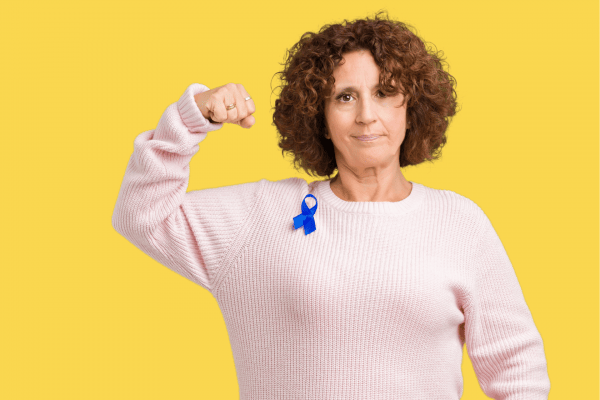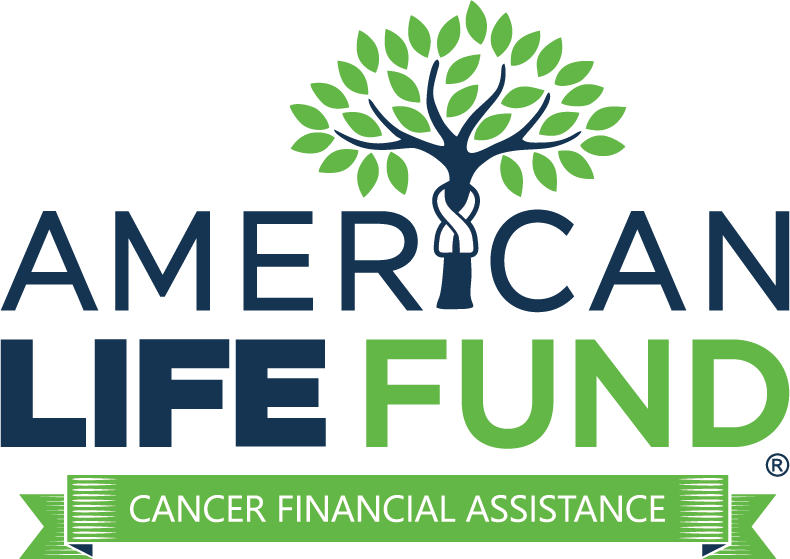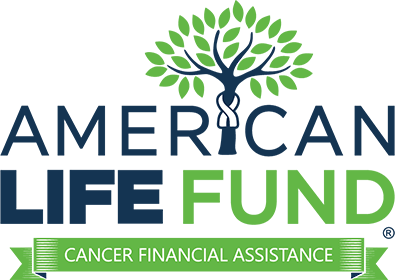The cost of cancer can take a toll on cancer patients and caregivers. Medical costs related to late-stage cancer treatment in 2018 have drastically increased, and new medicines prove more expensive than last year.
In addition to cancer care expected costs, patients may have to pay for transportation, existing debt, living expenses, and nutrition.
According to the American Cancer Society Cancer Action Network, the annual cost of cancer in 2014 was roughly $91.8 billion. This figure represents $4 billion in out-of-pocket costs and the remaining amount in overall healthcare expenditures.
Unfortunately, late-stage cancer patients don’t just face the cost of cancer care. In most cases, they also lose their income. According to Reuters Health, a cancer patient misses five weeks of work in the first year after their cancer diagnosis. On average, late-stage cancer patients see their earnings drop 40 percent after a cancer diagnosis. For example, if a late-stage cancer patient earns $50,000 per year, their income is likely to drop to $30,000 per year for two years. Paying for cancer treatment can change an entire lifestyle.
According to the American Cancer Society Cancer Action Network, the annual cost of cancer in 2014 was roughly $91.8 billion. This figure represents $4 billion in out-of-pocket costs and the remaining amount in overall healthcare expenditures.
Unfortunately, late-stage cancer patients don’t just face the cost of cancer care. In most cases, they also lose their income. According to Reuters Health, a cancer patient misses five weeks of work in the first year after their diagnosis. On average, late-stage cancer patients see their earnings drop 40 percent after a cancer diagnosis. For example, if a late-stage cancer patient earns $50,000 per year, their income is likely to drop to $30,000 per year for two years. Paying for cancer treatment can change an entire lifestyle.


The Financial Effects of The Cost of Cancer
Cancer treatments have advanced significantly over the years, leading to improved survival rates. However, these advancements come at a high cost. The projected cost of cancer treatment is expected to rise steadily in the coming years, making it increasingly challenging for individuals to afford adequate care. From chemotherapy sessions to radiation therapies, medications, hospital stays, and surgical procedures, the expenses associated with cancer treatment can quickly accumulate.
Viatical settlements can provide cash for individuals that need income while taking time off from work to get cancer care. If left unpaid, outstanding medical bills and delinquent payments can affect your credit score and overall finances and the availability to receive future quality healthcare.
A viatical settlement is for late-stage cancer patients in need of immediate cancer financial assistance. Unfortunately, most late-stage cancer patients are unaware of the viatical settlement options and simply let their life insurance policy lapse or are unaware that this asset could have immediate value.

The Cost to Treat The Top Cancers
Cancer does not discriminate. Any person can get cancer in any area of their body. Below are the leading types of cancer and the National Cancer Institute projected cost of treatment for 2019-2020 for these cancer types.
- Lung cancer: $60,885 initial cost, $7,591 annual ongoing costs, and $95,318 for the last year of life
- Colorectal cancer: $51,812 initial cost, $4,595 annual ongoing costs, and $85,671 for the last year of life
- Bladder cancer: $20,960 initial cost, $4,677 annual ongoing costs, and $75,772 for the last year of life
- Melanoma: $5,437 initial cost, $1,951 annual ongoing costs, and $62,436 for the last year of life
- Breast cancer: $23,078 initial cost, $2,207 annual ongoing costs, and $62,856 for the last year of life
- Uterine cancer: $26,775 initial cost, $1,535 annual ongoing costs, and $70,175 for the last year of life
Living with cancer is not only emotionally and physically devastating; it can quickly drain a family’s finances as well. It is no surprise that people with cancer file for bankruptcy at two and one-half times the rate of people who do not have cancer. Working with a viatical settlement company like American Life Fund can provide you and your family with the funds you need and save you from the financial stress of a diagnosis.
Advantages of a Viatical Settlement
Financial Relief: Viatical settlements offer immediate access to funds, providing financial stability during a challenging time.
Flexibility: The viator has the freedom to use the funds as needed, whether for medical bills, medical services, experimental treatments, debt repayment, or improving their quality of life.
No Repayment Required: Unlike loans, viatical settlements do not require repayment. The funds received are the viator’s to keep.
Confidentiality: Viatical settlements are private transactions that do not involve credit checks or public disclosure.
Peace of Mind: Knowing that financial matters are taken care of allows individuals and their families to focus on what matters most: their health and well-being.

How a Viatical Settlement Can Benefit You
A viatical settlement is an arrangement in which someone with a terminal disease sells their life insurance policy at a discount from its face value for ready cash. In particular, late-stage cancer patients without insurance often get diagnosed when the disease has spread throughout the body. As a direct result, they are even more likely to miss work and require aggressive treatment. In this scenario, a viatical settlement can help families pay off debt and pay for alternative treatment not included in health insurance coverage.
In most situations, viatical settlements are tax-free. They can be used to pay for the six most expensive primary approaches for cancer care: surgery, radiation, pharmacological therapy, hormone therapy, immunotherapy, and chemotherapy.
Cancer patients may need to receive aggressive and expensive treatment combinations depending on the success of surgery, that is, if surgery is an option. If cancer spreads unexpectedly, patients must be able to pay for additional treatment and medication. The cost of cancer care to the patient can skyrocket depending on the type and duration of the treatment.
Many late-stage cancer patients have surgery at least once as part of their aggressive treatment plan. Cancer care costs increase if the surgery involves multiple medical providers and hospitals, not to mention clinical trials.
If a provider is not in-network, a plan may not cover the full cost for the out-of-network provider or service. This can lead the patient to receive unexpected medical bills and added stress.
Cancer patients may need to receive aggressive and expensive treatment combinations depending on the success of surgery, that is, if surgery is an option. If cancer spreads unexpectedly, patients must be able to pay for additional treatment and medication. The cost of cancer care to the patient can skyrocket depending on the type and duration of the treatment.
Many late-stage cancer patients have surgery at least once as part of their aggressive treatment plan. Cancer care costs increase if the surgery involves multiple medical providers and hospitals, not to mention clinical trials.
If a provider is not in-network, a plan may not cover the full cost for the out-of-network provider or service. This can lead the patient to receive unexpected medical bills and added stress.
Factors to Consider Before Pursuing a Viatical Settlement
Before opting for a viatical settlement, several factors should be taken into consideration:
Life Expectancy: The longer the life expectancy, the lower the settlement offer. It is essential to evaluate if a viatical settlement aligns with the individual’s financial needs and expected lifespan.
Alternative Financial Options: Exploring other sources of financial assistance, such as medical insurance, government programs, or support from family and friends, is crucial to ensure all available avenues are considered.
Professional Guidance: Seeking advice from financial advisors or professionals experienced in viatical settlements can provide valuable insights and help make informed decisions.
Choosing a Reliable Viatical Settlement Provider
Selecting a reputable viatical settlement provider is crucial to ensure a smooth and ethical transaction. Consider the following when choosing a provider:
Experience and Track Record: Look for established companies with a history of successfully facilitating viatical settlements.
Licensing and Regulation: Verify that the provider is licensed and regulated by the appropriate authorities to ensure compliance with industry standards.
Transparency and Disclosure: Ensure the provider provides clear information about the process, fees, and any potential risks involved.
Customer Reviews and Testimonials: Research the provider’s reputation by reading reviews and testimonials from previous clients.
Contact us
There is no shame in recognizing that you need some financial assistance. At American Life Fund, we believe that knowing your financial options is the key! The more options, the better! We have dedicated viatical settlement specialists ready to assist you every step of the way. Apply today.
FAQs (Frequently Asked Questions)
What is The Viatical Settlement Process?
The viatical settlement process involves evaluating the policy, discussing an offer with the insured, completing documentation, receiving funds, and the company transferring the policy’s ownership.
Can Anyone Qualify For a Viatical Settlement?
To qualify for a viatical settlement, individuals must have a serious illness such as Cancer, ALS, or Alzheimer’s.
Can Cancer Survivors Qualify For a Viatical Settlement?
Viatical settlements are generally designed for individuals with an active, serious illness.. Cancer survivors may not meet the eligibility criteria unless they face a new cancer diagnosis with a prognosis of two years or less.
What Happens to The Life Insurance Policy After a Viatical Settlement?
The viatical settlement provider becomes the new policy owner and beneficiary and the insured no longer has the coverage provided by the sold policy
How Does The Viatical Settlement Process Address The Financial Burden On Cancer Patients and Their Families?
The viatical settlement process can provide financial relief by converting a life insurance policy into funds that can be used to cover medical bills, cancer care costs, and other associated expenses. This can ease the economic burden on patients and their families during the challenging phases of the cancer journey.
Are Viatical Settlements Taxable?
The tax implications of viatical settlements vary depending on individual circumstances and local tax laws. Consult with a tax advisor for personalized guidance.
How Can I Ensure Ethical Practices in Viatical Settlements?
Research providers, seek legal advice, and report any suspicious or unethical behavior to protect yourself and others from potential scams.
How Can Cancer Patients Navigate the Financial Impact of Oral Prescription Drug Costs Through Viatical Settlements?
Viatical settlements can potentially assist cancer patients in managing the financial impact of oral prescription drug costs by providing a lump sum payment that can be utilized to cover various expenses, including medication expenses during treatment.
Is There Financial Assistance Available For Cancer Patients Beyond Viatical Settlements?
Beyond viatical settlements, cancer patients should explore additional financial assistance options, such as support from the American Cancer Society, the National Cancer Institute, and other organizations dedicated to easing the economic burden on patients and their families.





